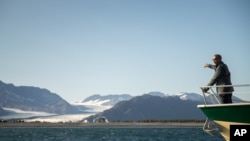USMCDevilDog
Member
Now, I know this might just be some Liberal topic that they only think about or it may not. But, I was watching a program about Global Warming on the History Channel the other day and it scared the living crap out of me from what they're saying could happen in the next 5 to 20 years if this keeps on going.
The thing that caught my ear the most was the forecast of a Modern Ice-Age, which is right around the corner if this continues. During Summers, if haven't noticed already, it's getting much much hotter. I quote "The world has been at its hottest ever the past 15 years and getting hotter in the last 5." This past year the temperatures during summers have risen up by 7 Degrees. If that continues then it will be unbearable for human life to survive during the Summers and late Springs, even more so during the Winters from the Ice Age.
Now maybe they're just blabbing their mouths and its just them worrying too much, but I'm just saying what I heard and it scares me thinking that that's in our lifetime.
This is some serious shit.
The thing that caught my ear the most was the forecast of a Modern Ice-Age, which is right around the corner if this continues. During Summers, if haven't noticed already, it's getting much much hotter. I quote "The world has been at its hottest ever the past 15 years and getting hotter in the last 5." This past year the temperatures during summers have risen up by 7 Degrees. If that continues then it will be unbearable for human life to survive during the Summers and late Springs, even more so during the Winters from the Ice Age.
Now maybe they're just blabbing their mouths and its just them worrying too much, but I'm just saying what I heard and it scares me thinking that that's in our lifetime.
This is some serious shit.




